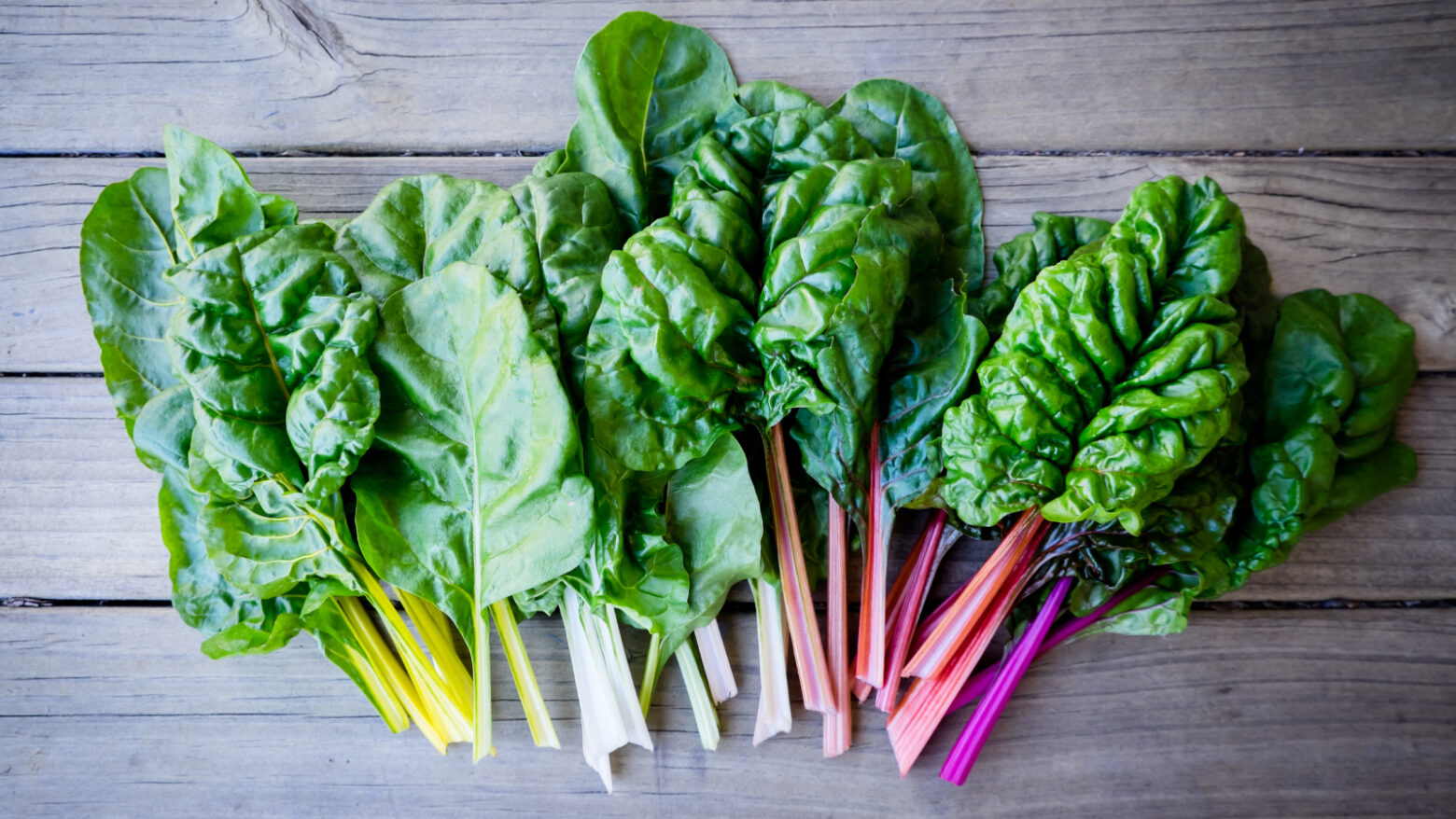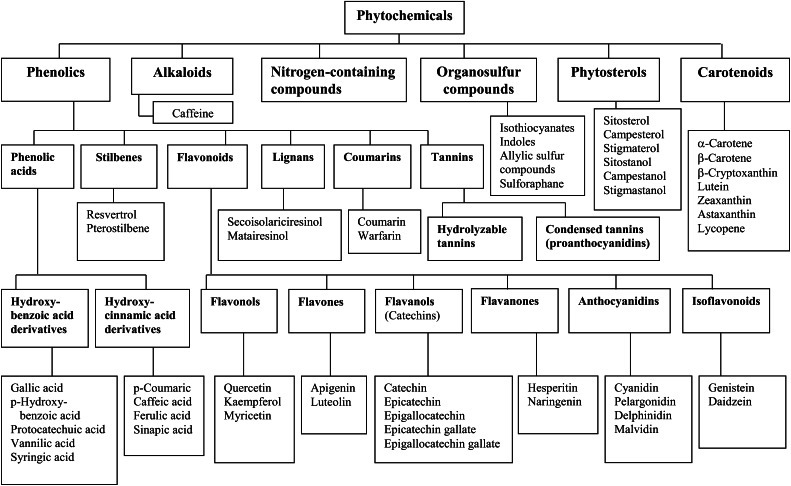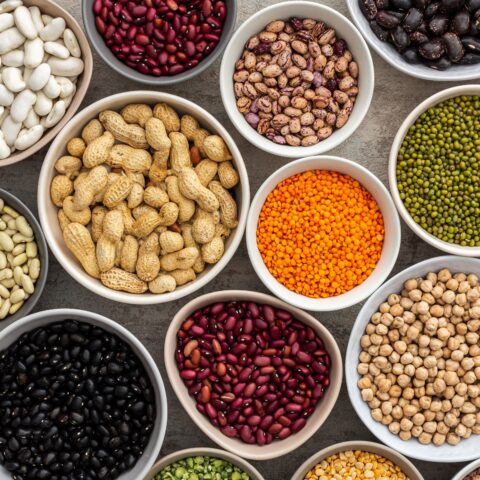Why You Should Eat Your Vegetables

There may not be a more agreed-upon nutritional choice, across the board, than a daily intake of vegetables.1 From our parents to our grandparents, we may have heard “eat your vegetables” at every meal. It turns out that they were on to something.2 There is evidence that vegetable consumption has a hugely protective effect on cancers of the stomach, esophagus, lung, oral cavity and pharynx, endometrium, pancreas, and colon.3,4 Not too shabby. Unfortunately, the vast majority of us are not taking that time-honored advice. As researchers have found, there is a huge gap between the average consumption of vegetables in Americans and the amount that is actually recommended.5,6
What may be further damning for our collective health by not consuming enough vegetables is how we miss out on a plethora of phytochemicals, which are not even yet fully understood by the scientific community.7 Bioactive compounds such as isothiocyanate erucin (found in cruciferous vegetables) have been studied in regard to their potential anti-cancer effects.8,9 Then, there is sulforaphane, which is found in broccoli.10 This dietary component has been studied extensively across a wide range of conditions, from autism to cancer.11

The antioxidants in vegetables can even improve eye health.12 Carrots are a common example, but there are many more vegetables that contain eye-healthy lutein and vitamin A. Most startlingly, however, researchers have found the more vegetables consumed, the less likely people are to die!13 Though there are no doubt other lifestyle factors at play in such studies, high vegetable consumption is often correlated with lower rates of a number of diseases that can cut our lives short.14,15
The Bottom Line
It may not always be fun to eat your vegetables, but it is perhaps the single best thing you can do for your long-term health.16,17 The bottom line is, we all have to eat something. The scientific evidence has shown the positive influence of nutrients on specific molecular systems and mechanisms that maintain mental function,18 while high-fat, refined sugar diets have been shown to reduce hippocampal brain-derived neurotrophic factor, neuronal plasticity, and learning.19, 20 It just makes sense to go with low-fat, natural veggies. Not to mention loading up on these brain-enhancing foods will also take away room on your plate for poor nutritional choices—like pizza.
A Paleo Diet promotes eating lots of vegetables, as well as other healthy elements like omega-3 fatty acids, in addition to quality sources of protein. All of these help us to achieve our most optimal state of health. As our planet becomes increasingly unhealthy, we must take our own diet and lifestyle seriously and make smart choices. And nothing is smarter than eating plenty of vegetables every day—just like your mother said.
References
[1] Wang X, Ouyang Y, Liu J, et al. Fruit and vegetable consumption and mortality from all causes, cardiovascular disease, and cancer: systematic review and dose-response meta-analysis of prospective cohort studies. BMJ. 2014;349:g4490.
[2] Liu RH. Health benefits of fruit and vegetables are from additive and synergistic combinations of phytochemicals. Am J Clin Nutr. 2003;78(3 Suppl):517S-520S.
[3] Steinmetz KA, Potter JD. Vegetables, fruit, and cancer prevention: a review. J Am Diet Assoc. 1996;96(10):1027-39.
[4] Van duyn MA, Pivonka E. Overview of the health benefits of fruit and vegetable consumption for the dietetics professional: selected literature. J Am Diet Assoc. 2000;100(12):1511-21.
[5] Liu RH. Health-promoting components of fruits and vegetables in the diet. Adv Nutr. 2013;4(3):384S-92S.
[6] Katz DL. Plant foods in the American diet? As we sow. Medscape J Med. 2009;11(1):25.
[7] W watson G, M beaver L, E williams D, H dashwood R, Ho E. Phytochemicals from cruciferous vegetables, epigenetics, and prostate cancer prevention. AAPS J. 2013;15(4):951-61.
[8] Melchini A, Traka MH, Catania S, et al. Antiproliferative activity of the dietary isothiocyanate erucin, a bioactive compound from cruciferous vegetables, on human prostate cancer cells. Nutr Cancer. 2013;65(1):132-8.
[9] Herz C, Hertrampf A, Zimmermann S, et al. The isothiocyanate erucin abrogates telomerase in hepatocellular carcinoma cells in vitro and in an orthotopic xenograft tumour model of HCC. J Cell Mol Med. 2014;18(12):2393-403.
[10] Singh K, Connors SL, Macklin EA, et al. Sulforaphane treatment of autism spectrum disorder (ASD). Proc Natl Acad Sci USA. 2014;111(43):15550-5.
[11] Li Y, Zhang T. Targeting cancer stem cells with sulforaphane, a dietary component from broccoli and broccoli sprouts. Future Oncol. 2013;9(8):1097-103.
[12] Sommerburg O, Keunen JE, Bird AC, Van kuijk FJ. Fruits and vegetables that are sources for lutein and zeaxanthin: the macular pigment in human eyes. Br J Ophthalmol. 1998;82(8):907-10.
[13] Genkinger JM, Platz EA, Hoffman SC, Comstock GW, Helzlsouer KJ. Fruit, vegetable, and antioxidant intake and all-cause, cancer, and cardiovascular disease mortality in a community-dwelling population in Washington County, Maryland. Am J Epidemiol. 2004;160(12):1223-33.
[14] Grant R, Bilgin A, Zeuschner C, et al. The relative impact of a vegetable-rich diet on key markers of health in a cohort of Australian adolescents. Asia Pac J Clin Nutr. 2008;17(1):107-15.
[15] Adams MR, Golden DL, Chen H, Register TC, Gugger ET. A diet rich in green and yellow vegetables inhibits atherosclerosis in mice. J Nutr. 2006;136(7):1886-9.
[16] Holt EM, Steffen LM, Moran A, et al. Fruit and vegetable consumption and its relation to markers of inflammation and oxidative stress in adolescents. J Am Diet Assoc. 2009;109(3):414-21.
[17] Slavin JL, Lloyd B. Health benefits of fruits and vegetables. Adv Nutr. 2012;3(4):506-16.
[18] Gómez-pinilla F. Brain foods: the effects of nutrients on brain function. Nat Rev Neurosci. 2008;9(7):568-78.
[19] Molteni R, Barnard RJ, Ying Z, Roberts CK, Gómez-pinilla F. A high-fat, refined sugar diet reduces hippocampal brain-derived neurotrophic factor, neuronal plasticity, and learning. Neuroscience. 2002;112(4):803-14.
[20] Avena NM, Rada P, Hoebel BG. Evidence for sugar addiction: behavioral and neurochemical effects of intermittent, excessive sugar intake. Neurosci Biobehav Rev. 2008;32(1):20-39
Casey Thaler, B.A., NASM-CPT, FNS
Casey Thaler is a certified personal trainer and nutrition specialist.
More About The Author




